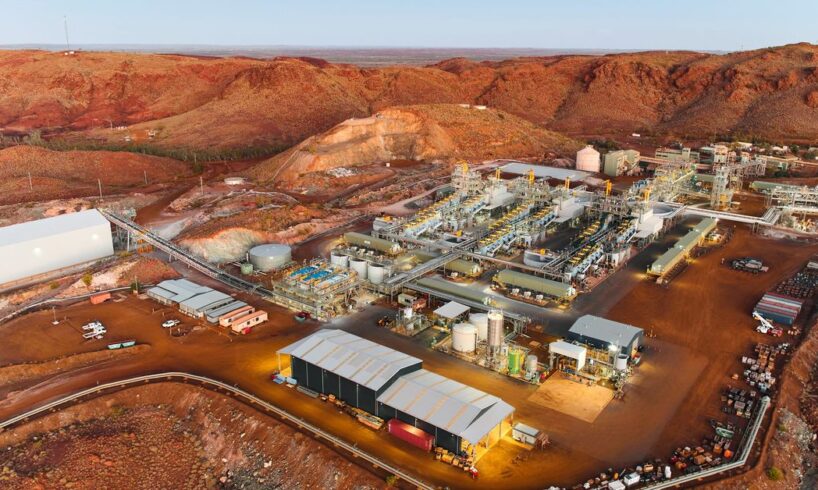
The reforms will be introduced to parliament in the next fortnight – parliament’s second-last sitting term of the year – but are set to face stiff opposition from both the Coalition and Greens.
Labor needs the support of one of the parties to get the laws through the Senate.
Environment Minister Murray Watt has warned that a delay to his proposed laws could slow down critical minerals projects. (Supplied)
Speaking this morning, Environment Minister Murray Watt said called on the opposition and minor party to get behind the laws, saying a failure to do so would put a series of important projects – including the extraction of critical minerals – at risk.
“One of the risks we have that if these reforms are not passed is that we won’t be able to capitalise on the enormous opportunity Australia has to become a major supplier of critical minerals to the world,” he told Sky News.
“That’s not the only one; if we don’t pass these laws, it will continue to slow down the delivery of housing that we desperately need.
“It will slow down the delivery of the energy projects that we need.”
Watt said the legislation will be introduced to parliament in the next fortnight. (Alex Ellinghausen)
Before Watt’s comments, senior Nationals senator Bridget McKenzie criticised the laws, claiming they could impede that deal.
“I can’t see this type of legislation making that easier to get the environmental approvals,” she told Sky.
Modernising Australia’s outdated environmental laws has been a source of contention for many years now.
A review in 2020 – when current Opposition Leader Sussan Ley was the environment minister – found the 1999 Environment Protection and Biodiversity Conservation (EPBC) Act “requires fundamental reform”, is “a barrier to holistic environmental management which… is essential for success” and isn’t trusted by the public.
Larissa Waters and the Greens have criticised the laws as too weak. (PENNY STEPHENS)
While previous environment minister Tanya Plibersek was on the verge of landing reforms – known as the “nature positive” laws – last year, that was vetoed at the last minute by Prime Minister Anthony Albanese, and the package was shelved before the federal election.
Watt’s bid to reform the EPBC Act comes with the government under pressure to cut back on red and green tape in a bid to boost economic productivity and quicken and simplify the approval process for important infrastructure, such as housing.
At the same time, with Australia suffering from deforestation, species loss and other environmental issues, the Greens have criticised the proposed reforms as too weak.
“It is an embarrassment that the environment minister would put forward this proposal when it does so little to protect nature, and in fact weakens an already weak piece of legislation,” Greens leader Larissa Waters said.
Sussan Ley and the opposition say the laws are not pro-business enough. (Dominic Lorrimer)
But Ley said the laws were “completely unreasonable” because they make projects too difficult for businesses.
“Labor’s approach to environmental laws is actually a handbrake on projects,” she said.
“It’s a red light to jobs and it’s a gift to our overseas competitors who are attracting this investment elsewhere.”
Watt said he was open to any amendments the opposition or Greens wished to propose, but added the contrasting criticism proved the government had got the balance right after months of consultation.
“Over the last couple of days we’ve seen the Coalition say that this legislation is too good for the environment, we’ve seen the Greens say that it’s too good for business,” he said.
“It sounds to me like we’ve got the balance pretty right.”





